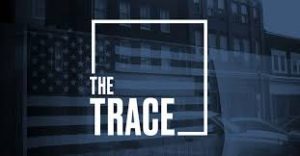
By Alex Yablon
The Trace (11/16/18)
For the past two weeks, the National Rifle Association has raged at doctors in a very public feud over the place of physicians in the national gun debate, and doctors have been happy to hit back. At the same time, another quieter battle is brewing within the medical profession over just how far doctors should go to fight for stronger gun laws.
After the American College of Physicians published a position paperdemanding government action on gun laws, the NRA issued a now-infamous tweet telling “self-important anti-gun doctors to stay in their lane.” Outraged doctors railed against the gun group on Twitter with the hashtag #ThisIsOurLane, garnering national media coverage. Simultaneously, and with less fanfare, some physicians are demanding that their trade associations — including the American College of Physicians, the American Medical Association, and the American College of Emergency Physicians — stop contributing to NRA-endorsed politicians.
Dr. Michael Siegel of the Boston University School of Public Health is leading the charge. Siegel wants the medical lobby to consider a candidate’s position on gun policy in addition to issues like malpractice law or Medicare when considering whether to lend financial support.
A vocal group of doctors is pushing physicians groups to stop contributing to candidates supported by the National Rifle Association.
“These organizations are making public statements and taking public positions in support of gun policies. Which is great. But it doesn’t make sense to support candidates who work against these policies,” Siegel said in an interview. “If candidates knew that accepting NRA money was going to mean losing money from medical organizations, that could have an impact.”
Siegel’s campaign was sparked by the same American College of Physicians paper that ignited the NRA’s own strident take-down of doctors.
Siegel was not impressed with the ACP’s October manifesto. As he wrote in an October 31 letter to ACP leadership, the words rang hollow in the context of the medical group’s political giving. In the election cycle then drawing to a close, Siegel noted, the ACP gave $46,000 to national politicians supported by the NRA. Beneficiaries included members of House Republican leadership like Kevin Brady and Paul Ryan. The ACP also contributed money to Andy Barr and Greg Walden, strong proponents of the NRA’s top policy objective, national concealed-carry reciprocity.
Ultimate hypocrisy
“This is the ultimate in hypocrisy,” Siegel wrote. “I don’t see how physicians can in good conscience contribute money to ACP when they know that a good chunk of that money is going to support politicians who have committed to fighting against gun violence prevention policies.”
In series of blog posts published over the next few days, Siegel criticized the American College of Emergency Physicians and the American Medical Association for similar behavior. The ACEP gave $475,000 to NRA-supported federal candidates and elected officials this year while the AMA gave $365,000.
Siegel has since drawn the support of a handful of doctors who share his interest in pushing their trade organizations to make a shift. Boston emergency pediatrician Eric Fleegler compared the conflict to another controversial issue: “I would be outraged if a medical society that I belong to supported an anti-vaccine politician,” Fleegler said. ”When people are voting, there are elements of each candidate they may agree or disagree with, but that’s very different from a financial contribution. That’s a true endorsement.”
This isn’t the first time doctors have highlighted the divergence between the physicians lobby’s words and political spending. In a study published in October 2017 by the Annals of Emergency Medicine, Dr. Jay Schuur of Boston’s Brigham and Women’s Hospital and Hannah Decker, an Emory University medical student, analyzed 2016 political contributions by the National Emergency Medical PAC (NEMPAC), the political arm of the ACEP. Schuur and Decker found that NEMPAC gave more to incumbent members of Congress who had voted against universal background check legislation than to those who had supported the bills.
Disconnect of message & money
Schuur was struck by the disconnect between the group’s words and actions. “Physicians groups have made advocacy for gun safety a big issue, and if it is such a big issue, it should be criteria by which political donations are screened,” he told The Trace.
The medical groups have pushed back against the recent criticism, arguing that it is simplistic. In a reply to Siegel’s letter, Robert Doherty, the American College of Physician’s senior vice president for governmental affairs, called the accusations of hypocrisy “wrongful assertions.” He explained that the ACP cannot be a single-issue organization. “As much as we would like to find that lawmaker who agrees with us on everything, she does not exist,” Doherty wrote. He declined to comment for this article.
The American Medical Association did not immediately respond to a call seeking comment. A spokesman for the American College of Emergency Physicians said, in an emailed statement, “ACEP is not a single-issue organization and our political giving through NEMPAC reflects the diversity of our membership.”
Indeed, research shows that doctors are not a politically homogeneous bunch. A 2016 analysis of voter registration data and physician listings by the political scientist Eitan Hersh and professor of psychiatry Matthew Goldenberg, both of Yale, found that doctors are almost evenly split between the Republican and Democratic parties.
Some doctors already think medical associations have gone too far by issuing position papers on gun violence. …
*****

